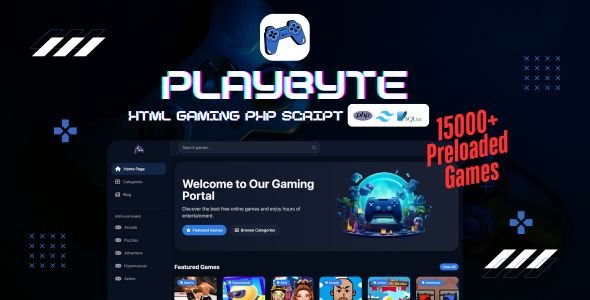
Level Up Your Fun: Exploring the World of HTML Games
Remember the times of basic online games which occupied your hours? Many of them, no question, were built with HTML, CSS and JavaScript. While you may think that there are only a few choices for AAA game development game in Unity and Unreal Engine, HTML game development is incredibly accessible and capable of creating an engaging, interactive websites and browser games directly inside your browser window.
Why HTML Games?
Why HTML, for game development then? Here are some compelling case:
Accessibility: HTML games load inside web browsers straight away, eliminating the necessity for downloading/ installing. This makes them extremely user-friendly for quite a broad audience.
Cross-Platform: If you can play an HTML game you most likely have a device with web browser, either that or it can play if you just use mobile version and use windows phone link to access it, however if that is the case you are either looking up debug code cause it isn't showing mobile version. This cross-platform compatibility makes the ServiceAnywhere program a big plus.
Ease of Development (Relatively Speaking!): Though game creation is never particularly simple, the entry for HTML for game development is lower on that with many other platforms. The foundational technologies – HTML, CSS, and JavaScript – are well understood technologies that also have substantial online documentation.
Quick Prototyping: HTML is great for doing a fast game concept prototyping. You can get a simple game loop and by doing the minimum viable mechanics going within a few weeks, time.
- Open Source Ecosystem:- The open – source libraries & frameworks, everyone of them is a best friend within web development. There are types of special excellent JavaScript game engine libraries that can speed up development, and it will offer pre made functionality.
Popular Technologies and Frameworks
HTML game development leverages several key technologies:
- HTML5: Provides the structure and elements of the game, including the
<canvas>element, which is often used for drawing graphics. - CSS3: Handles the styling and visual presentation of the game elements.
- JavaScript: The workhorse of HTML games. It controls game logic, user input, animation, and everything else that makes the game interactive.
Several JavaScript frameworks and libraries can streamline the development process:
- Phaser: A popular 2D game framework that provides a wide range of features, including physics engines, animation tools, and input management.
- Babylon.js: A powerful 3D game engine for creating browser-based 3D games.
- Three.js: Another popular JavaScript library for creating 3D graphics in the browser. While not strictly a game engine, it's often used for game development.
- PixiJS: A fast 2D rendering library that's well-suited for creating visually appealing games.
Challenges and Considerations
Prominent benefits accompany HTML game development but users should recognize several important obstacles when working with this platform.
Browser-based games face performance constraints that occur during processing of complex graphics and large datasets. Optimization is crucial.
HTML games remain prone to various attacks that client-side users can carry out against the platform's security model. Game security measures together with anti-cheating mechanisms present a difficult task to developers.
Native game development provides better hardware functionality than what HTML games can handle.
JavaScript debugging poses occasional difficulties to programming developers. To achieve success browser developer tools need proper utilization.
Examples of HTML Games
There exist numerous game possibilities which HTML makes accessible to developers.
HTML allows developers to build straightforward arcade games which effectively recreate Tetris Snake and Pac-Man.
Games with puzzles work perfectly within HTML due to its natural compatibility with Sudoku and crossword puzzles along with match-3 games.
Users can develop 2D platformer games using HTML along with JavaScript game frameworks.
Simple RPG games with turn-based combat functions can be built using HTML properties despite their suitability for other platforms.
The HTML platform serves as an excellent solution for developing interactive educational resources.
Getting Started
Ready to dive in? Your first steps can follow this basic structure for developing a project.
Begin with Fundamentals since you need complete knowledge of HTML CSS and JavaScript.
While optional framework selection remains a choice for developers you should investigate JavaScript game frameworks to determine which one meets your specifications best above all else. Phaser presents itself as a beneficial framework for beginners.
Your game development environment requires both a text editor plus a web browser.
Begin by developing straightforward projects which include Pong games or basic puzzle formats.
Numerous online tutorials together with resources exist to assist you while creating HTML games.
You should try various design techniques and repeat your game development process without hesitation.
The Future of HTML Games
